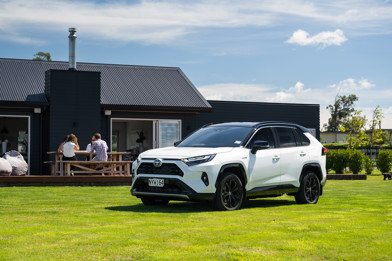The Commerce Commission has recommended a raft of new regulations aimed at increasing competition in the wholesale fuel market and driving petrol prices down.
This comes after a market study confirmed the fuel industry is not as competitive as it should be - and that Kiwis pay too much for petrol.
The recommendations include introducing a Terminal Gate Pricing (TGP) regime to increase trading opportunities for importers and resellers and regulating wholesale supply contracts to allow greater contractual freedom for retailers to compare offers and switch suppliers.
This means the major fuel companies, including Z Energy, BP and Mobil, will be required to offer a spot price at which they will sell fuel to wholesale customers at storage terminals.
All wholesale contracts should be written in clear and consise language and include a transparent cost-based pricing clause.
"We have identified several factors we consider are hindering competition and contributing to these high returns," the commission said. "In our view, the core problem is that an active wholesale market does not exist in New Zealand. This is weakening price competition in the retail market."
"The combination of infrastructure sharing and restrictive supply relationships gives the major fuel companies an advantage," commission chair Anna Rawlings said.
"There is a reduced ability for importers to compete for customers of the majors and for distributors and dealers to obtain competitive wholesale supply terms."
Commerce Minister Kris Faafoi will announce the government's response to the report later today.
The commission also recommended enforcing an industry code of conduct to give effect to the TGP regime.
Rawlings said the final report recommendations were non-binding and it was up to the government to implement any changes.
"As a result of our study, we consider many fuel companies have been making persistently higher profits over the past decade than we would expect in a workably competitive market. For consumers, this means they are paying higher pump prices than could be expected," she said.
"We consider that measures to improve competition at wholesale and retail levels of
the fuel supply chain will reduce their vulnerability to accommodating behaviour as
well as the potential effect of any such behaviour that does occur."
The government had asked the commission to investigate the $10 billion a year retail fuel industry after a 2017 study led by the Ministry of Business, Innovation and Employment found fuel pricing in some parts of the country may not be reasonable.
Prime Minister Jacinda Ardern had previously said consumers were being "fleeced at the pump" and the government had already "started work" on driving petrol prices down.
The regulator's market study found the country's fuel retailers may be earning close to $400 million a year in excess returns, and few expect any reduction in profitability any time soon.
Analysis of the capital employed by the firms showed their average returns have consistently exceeded the commission's estimate of their weighted average cost of capital since Shell sold its local business in 2010.
However, Z Energy, BP and Waitomo Group all challenged the Commerce Commission's claims that a lack of competition in the fuel sector is delivering participants excess returns.
Z Energy, the country's biggest fuel retailer, argued there were a number of inaccuracies in the commission's draft findings on profitability, including a misrepresentation of Z's 2016-2018 rate of return as about 22 per cent, about double Z's independently reviewed calculations of about 11 per cent.
- NZ Herald




